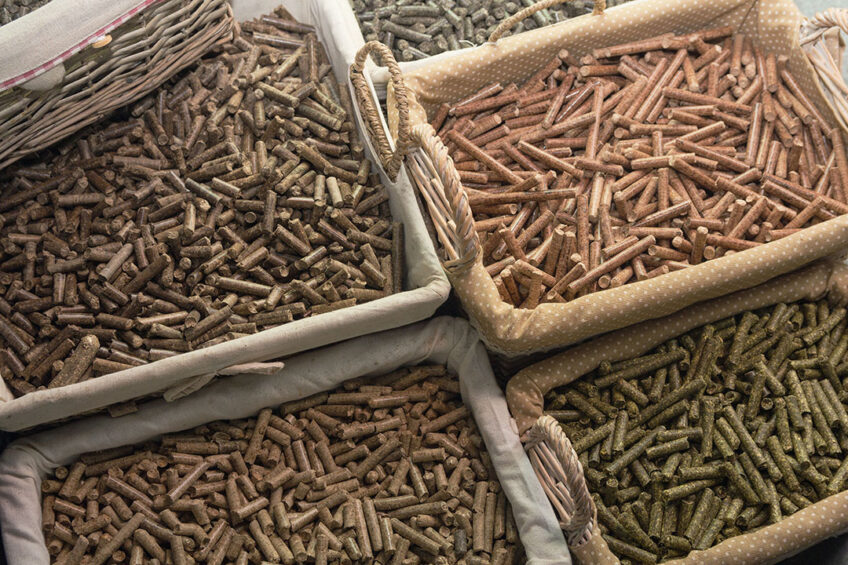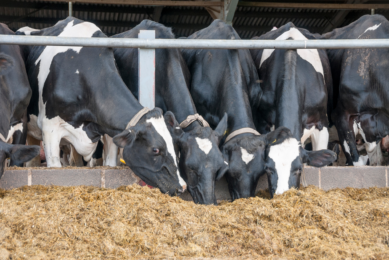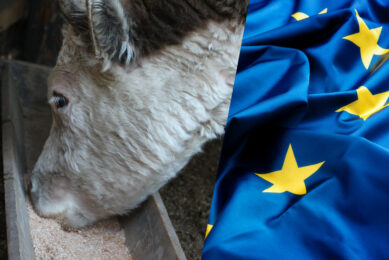Compound feed production falls across Europe with more expected

Avian influenza, economic uncertainty and animal welfare and green policies are set to affect compound feed production this year, following a decline in production in 2022.
EU compound feed production across the 27 member states for farmed animals is estimated at 148.9m tonnes – a fall of 3.8% on 2021 figures, according to data released by the trade body FEFAC.
Production decreased for animal feed sectors but most significantly for the pig sector (-6.7%) and poultry sector (-3.2%) due to the spread of African Swine Fever (ASF) and bird flu.
Pig feed production
Pig feed production fell by 3m tonnes compared to 2021 with many member states, including Denmark, Spain, France, Hungary, Portugal and Romania, experiencing a decrease of more than 5%. Smaller farms closed their businesses due to the deteriorating economic situation and on-farm profitability.
Pig meat exporting countries recued their production as China continued to recover from ASF, reducing its level of pork import volumes. ASF continued to play a role in Germany and Romania, affecting economic efficiency.
Poultry feed production
Poultry feed production fell by 2m tonnes with several countries including Bulgaria, France, Hungary, Italy and Portugal, heavily impacted by avian influenza. Some farms skipped cycles due to escalating costs, further impacting the demand for feed.
Cattle feed production
FEFAC reported that cattle feed production decreased by 0.5m tonnes compared to the previous year. This was partly due to the amount of additional feed bought in 2021 due to severe drought.
Impact of war & energy crisis
The Russian invasion of Ukraine and the related EU energy crisis have had a significant impact on the EU economy and inflation, leading to a reduced demand for animal products and therefore compound feed. Only 5 member states, including Poland, Slovakia and Austria managed to slightly increase or stabilise their feed production.
Environmental & welfare policies
Environmental/climate and animal welfare policies also continued to play a role in a number of member states, such as the Netherlands, Belgium and Germany, which kept the pressure on reducing livestock production numbers.
Further decreases in compound feed production expected
Looking ahead, projections by the European Commission suggest that compound feed falls are expected to fall for all species bar poultry this year. Uncertainties over feed and fertiliser prices as well as inflation are set to continue to influence the feed market. FEFAC market experts estimate that compound production is expected to further decline by 1.5% to a level of 146.8 m tonnes.
There may be a rebound in the 4th quarter in the pig and poultry sectors but this will not compensate for the entire loss in 2021/2. Regulatory uncertainty may further weigh on farms and their decisions to stay or leave their businesses.
Serious doubts remain on the impact of Ukrainian raw material import bans/restrictions on local markets and production in neighbouring Hungary, Poland, Slovakia and Romania and other affected nations, including Bulgaria.
At the same time, FEFAC says drought problems in southwest Europe may lead to an increased need for raw materials. Southern Spain has already seen temperatures near 40⁰c breaking records for the end of April. So, FEFAC argues, it will be important to maintain the Black Sea grain initiative.











